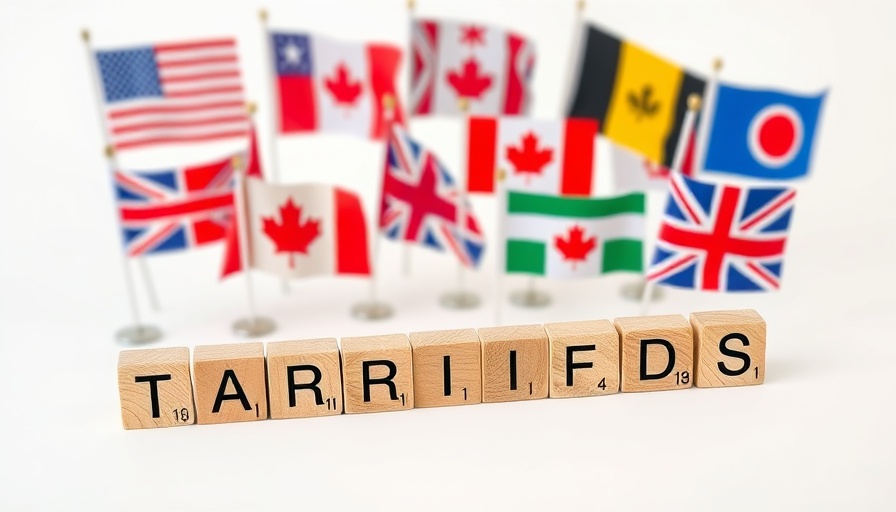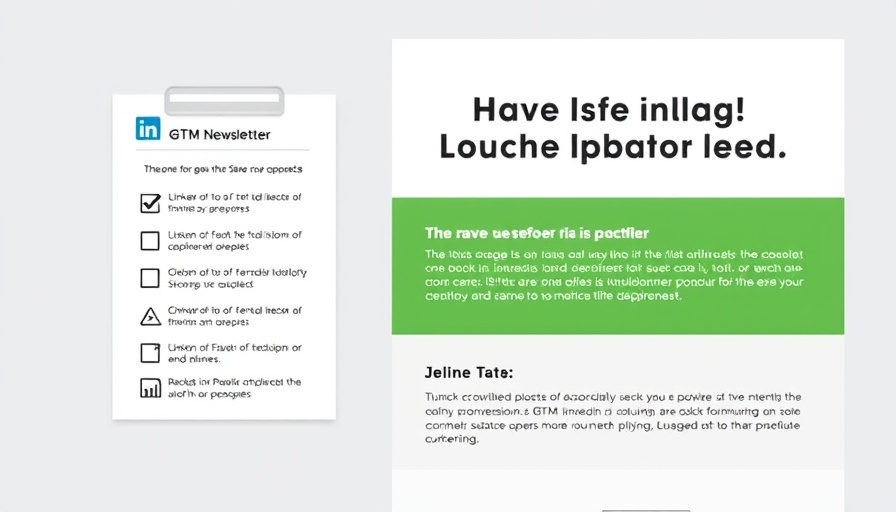
Understanding Auto Tariffs and Their Implications
As auto tariffs roll out across various markets, car dealerships find themselves navigating an increasingly complex landscape. These tariffs, which apply additional taxes on imported vehicles and auto parts, are causing significant shifts in pricing strategies and supply chains. Dealers need to grasp how these tariffs influence costs, customer buying behavior, and overall market dynamics.
Pricing Strategies Under Pressure
The impact of tariffs means that dealership owners must revisit their pricing structures. With the cost of importing vehicles rising due to tariffs, dealers may need to pass these costs onto consumers, which could lead to higher prices at a time when many buyers are looking for affordability. Understanding the right balance between maintaining competitive pricing and ensuring profitability will be crucial.
Strategies to Keep Customers Engaged
Engaging customers becomes paramount as costs rise. Dealerships can deploy various strategies, such as offering flexible financing options or enhancing trade-in offers to maintain interest despite higher purchase prices. Implementing advanced data analytics tools can help dealerships understand customer preferences and tailor their offerings accordingly.
Adapting to Supply Chain Challenges
With tariffs affecting parts acquisition, dealerships may face delays in inventory. This calls for a more agile supply chain management approach. Dealers should invest in technologies that provide real-time insights into inventory levels and supplier reliability, enabling timely responses to disruptions.
Insights from Industry Experts
Market analysts point to the necessity of adopting a proactive rather than reactive approach to these changes. Staying informed about proposed tariff adjustments and governmental trade negotiations will help dealerships anticipate changes and adapt swiftly. Managing relationships with suppliers and customers can also create loyalty and potentially mitigate losses.
Emotional Impact on Dealership Teams
The uncertainty brought by auto tariffs can affect dealership staff morale. It's crucial for management to communicate transparently about the implications of these tariffs and encourage a culture of innovation and collaboration as teams navigate these turbulent waters together. Encouraging input from sales teams and providing support through training can empower staff amidst market changes.
Future Predictions in the Automotive Market
Looking ahead, the automotive landscape will likely see significant transformations influenced by tariffs. As electric and autonomous vehicles gain traction, dealerships will need to stay ahead of technology trends while grappling with traditional market fluctuations caused by tariffs. This dual focus can set forward-thinking dealers apart.
With the auto industry linked closely to global economic trends, adaptability and innovative thinking must be at the forefront of dealership strategies. As they navigate this new terrain, it’s essential for dealers to remain proactive, continuously seeking ways to improve customer relations and operational efficiencies.
 Add Row
Add Row  Add
Add 




Write A Comment